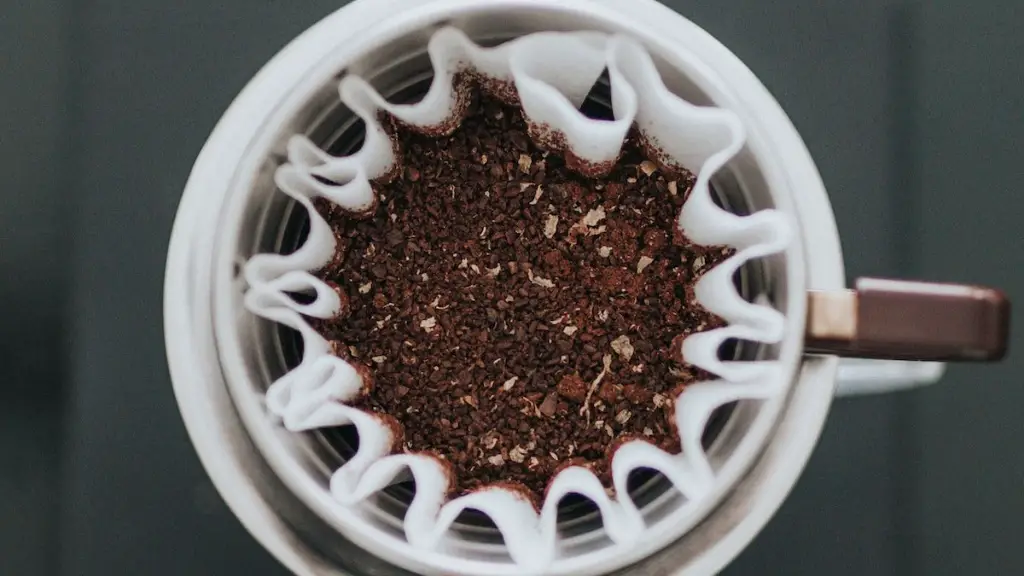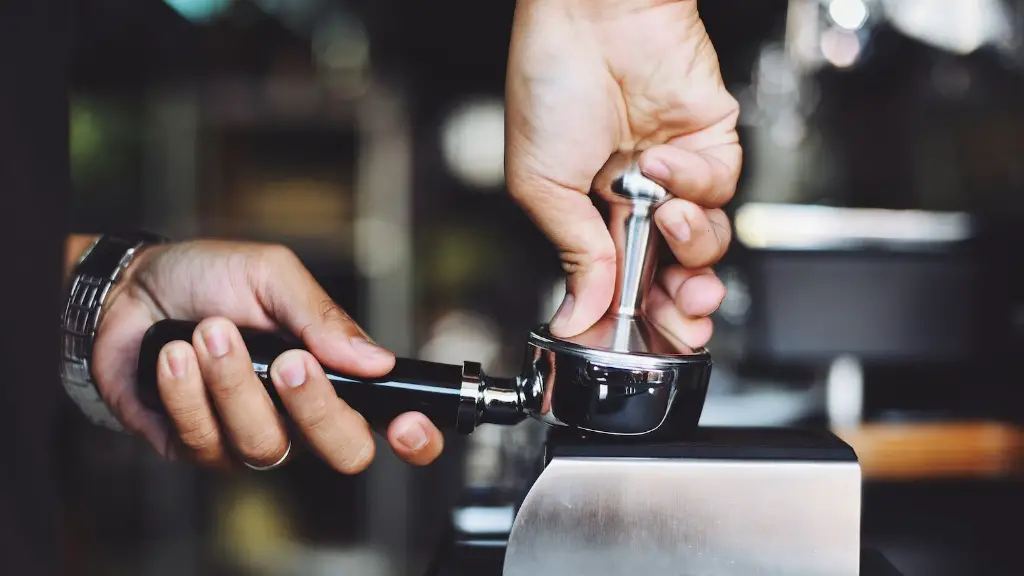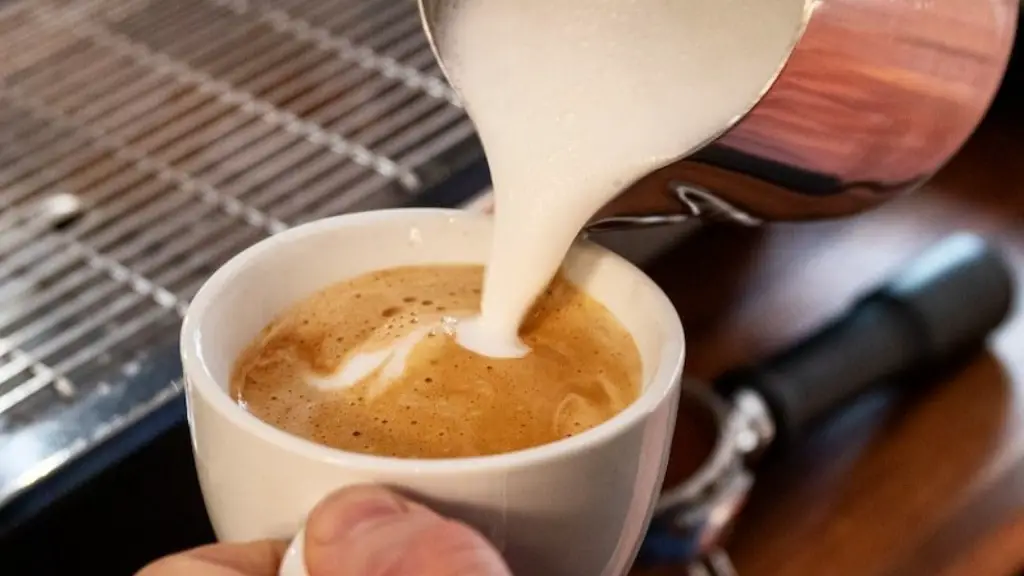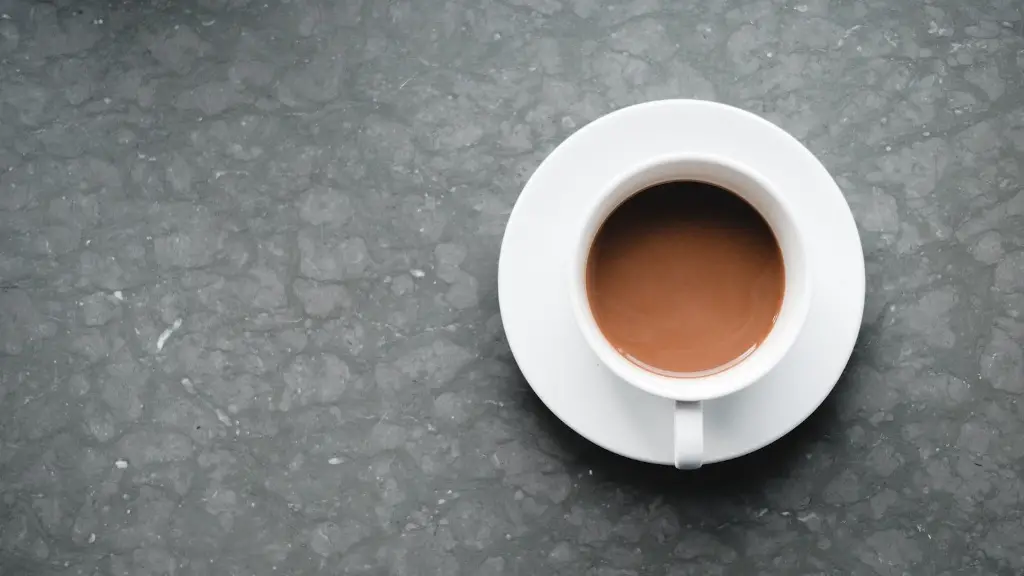Many people are unsure of whether they can drink coffee while taking medication for high blood pressure. Caffeine is a known stimulant and can have a number of negative impacts on the body, including an increased heart rate and increased blood pressure. Therefore, it can be difficult to know whether it is safe to drink coffee while taking blood pressure medications.
The first thing to understand is that blood pressure medications work by reducing the resistance of the blood vessels and allowing blood to flow more easily. High caffeine consumption has been linked to increased blood pressure, so it is important to be aware of the potential risks.
In general, people who are taking blood pressure medications should avoid caffeine as it can increase the risk of side effects and can also interfere with the effectiveness of the medication. However, some people have found that small amounts of caffeine do not adversely affect their blood pressure. There is no definitive answer as to whether people should avoid caffeine while taking blood pressure medications, as everyone’s body chemistry is different.
Doctors generally advise people to speak with their doctor before drinking coffee while taking any medication. This is because while some people can take caffeine without any adverse effects, others may experience increased levels of caffeine which can be detrimental to their health.
It is also important to note that caffeine is not the only factor that can affect blood pressure. Stress, lack of sleep, poor diet, and smoking are all lifestyle factors that can contribute to high blood pressure. If someone is trying to manage their blood pressure with medication, it is important that they manage their lifestyle factors as well.
Overall, it is important to be aware of the potential effects that caffeine can have on an individual’s blood pressure before they decide to drink coffee while taking blood pressure medications. It is best to consult a doctor before making any major changes to one’s diet. However, if the individual has discussed the topic with their doctor, limited amounts of coffee are unlikely to have a significant impact on their health.
Effects of Caffeine on Blood Pressure Over Time
Studies have shown that even small amounts of caffeine can cause a spike in blood pressure. In the short term, there is no significant risk from drinking caffeine. The risk comes from long-term consumption of coffee, or other caffeinated beverages, which can lead to a sustained increase in blood pressure over time. Over the long term, this can result in a higher risk of cardiovascular diseases such as heart attack and stroke.
What is interesting about the effects of caffeine on blood pressure is that there is no clear consensus. Different people respond to caffeine differently and, while in some cases it may cause an increase in blood pressure, in others it may have no effect at all. It is also worth noting that while caffeine can increase blood pressure in the short term, the effects may not be sustained over a long period of time.
Overall, it is important to be aware of the potential effects of caffeine on blood pressure and to speak to a doctor before making any changes to one’s diet. It is also important to note that, while caffeine can have an effect on blood pressure, other lifestyle factors such as stress, lack of sleep, poor diet, and smoking can also contribute to hypertension.
Interaction Between Caffeine and Blood Pressure Medication
Caffeine and blood pressure medication can interact in a number of different ways. Caffeine can increase the effects of the blood pressure medications, resulting in a greater reduction in blood pressure. On the other hand, caffeine can diminish the effects of the medication, resulting in higher blood pressure. In some cases caffeine can increase the risk of side effects from certain blood pressure medications.
It is important to speak to a doctor before consuming any type of caffeine while taking blood pressure medications. The doctor can provide advice on the potential risks and can also provide individualized instructions on how to manage the effects of caffeine on blood pressure. In some cases, the doctor may recommend avoiding caffeine entirely while taking blood pressure medications as there is no way to accurately predict how the two will interact.
It is also important to keep in mind that caffeine is not the only factor that can affect blood pressure. Other lifestyle factors such as stress, lack of sleep, poor diet, and smoking can all contribute to elevated blood pressure. Therefore, it is important to pay attention to all of the factors that can influence blood pressure, in order to have the most successful outcome.
Risks of Drinking Coffee While Taking Blood Pressure Medication
The potential risks of drinking coffee while taking blood pressure medication depend on the individual, their caffeine tolerance, and the type of medication they are taking. Generally, the potential risks of caffeine include headaches, palpitations, tremors, and an increase in blood pressure. However, these risks vary based on the individual and on the particular blood pressure medication.
Caffeine can also increase the amount of time it takes for blood pressure medications to take effect, making it difficult for the individual to get the desired results. This is because caffeine is a powerful stimulant and can increase the heart rate and blood pressure, which can make it harder for the medication to work.
Overall, it is not advisable to drink coffee while taking blood pressure medication unless it has been discussed with a doctor. While there are potential risks, it is important to keep in mind that everyone responds to caffeine differently and it is important to find out what works best for the individual.
Tips on Managing Caffeine while Taking Blood Pressure Medication
There are a few tips that people can follow to help manage their caffeine intake while taking blood pressure medication. First of all, it is important to speak to a doctor and discuss the potential risks and benefits of drinking coffee while taking blood pressure medication.
It is also important to keep track of how much caffeine is consumed each day as this can help gauge the effect that it is having. Additionally, it may be helpful to switch to decaffeinated coffee or other low-caffeine beverages. Finally, it is important to keep in mind that other lifestyle factors such as stress, lack of sleep, poor diet, and smoking can all contribute to elevated blood pressure.
Overall, the key to managing caffeine while taking blood pressure medication is to be aware of the potential risks, to speak to a doctor, and to pay attention to other lifestyle factors such as stress and diet.
Managing Stress Levels While Taking Blood Pressure Medication
Managing stress is an important factor in controlling blood pressure. Stress can cause the body’s natural “fight-or-flight” response, leading to increased heart rate and blood pressure. Over time, this can lead to negative effects on the heart and circulation, and can lead to elevated blood pressure.
It is important to manage stress in order to maintain healthy blood pressure levels. Stress management techniques such as meditation, yoga, and exercise can be beneficial. Other techniques include deep breathing, cognitive reframing, and writing in a journal. In addition, spending time with friends and family and engaging in activities that bring joy can all be helpful in managing stress.
In general, it is important to make sure that stress levels are being managed while taking blood pressure medication. This can help control your blood pressure and help ensure that the medication is working effectively.
Conclusion
In conclusion, drinking coffee while taking blood pressure medication can have potential risks. Caffeine can increase the heart rate, blood pressure, and can interfere with the effectiveness of the medication. It is important to speak to a doctor before drinking coffee while taking medication and to find out what works best for the individual.
In addition, other lifestyle factors such as stress, lack of sleep, poor diet, and smoking can all contribute to elevated blood pressure. It is important to manage these lifestyle factors in order to maintain healthy blood pressure levels. Finally, it is important to be aware of the potential risks of drinking coffee while taking blood pressure medication.





